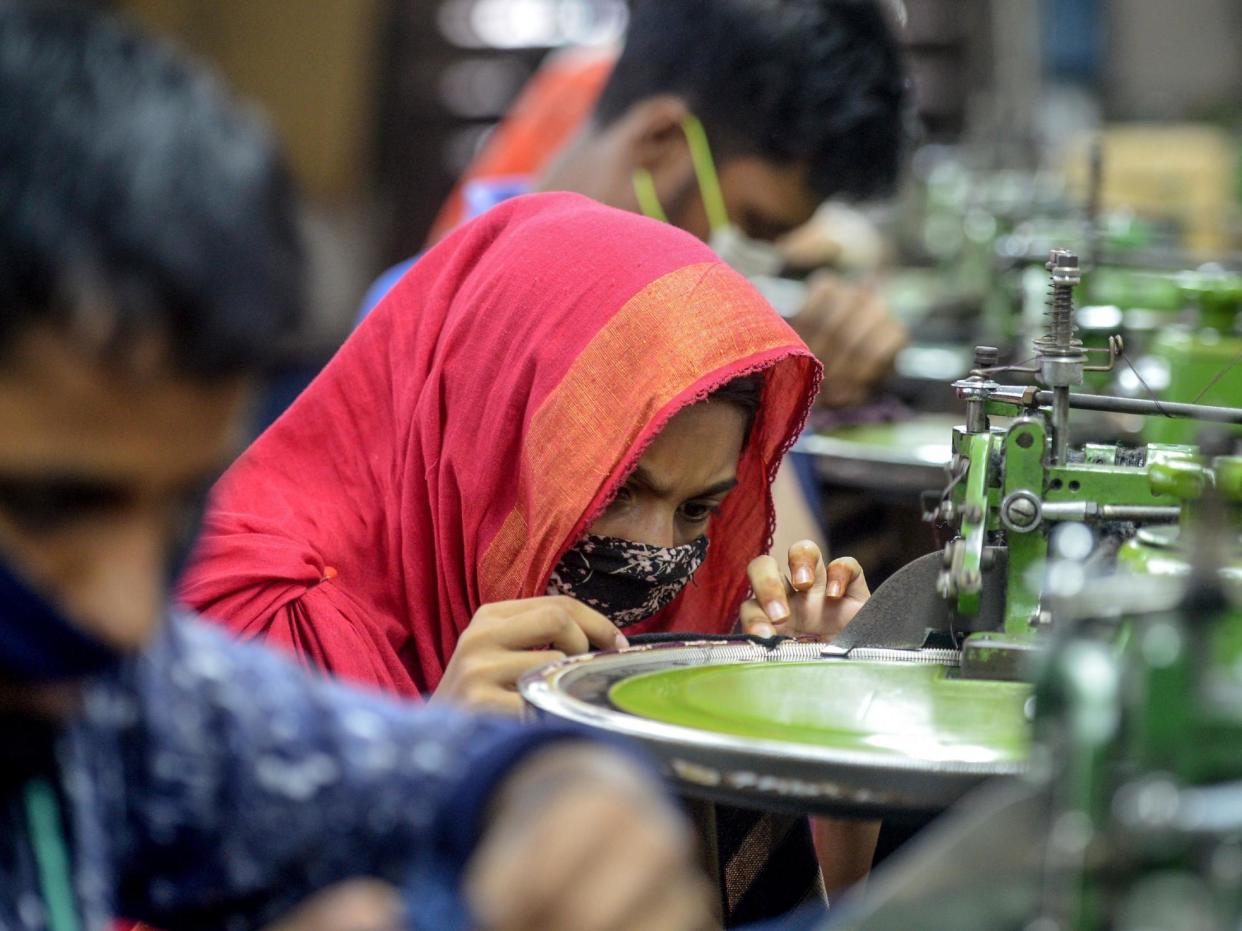Modern slavery is operating in plain sight. If our leaders won’t shoulder the burden, we have to

Modern-day slavery is not new, it has been happening in UK cities for years, and around the world. In fact, it is estimated that there are at least 40.3 million people worldwide are currently in enslaved, which is more than those exploited by the transatlantic slave trade.
The second lockdown in Leicester, as a result of the rising number of Covid-19 cases, revealed that during the lockdown, a textile factory – or “sweatshop” – continued to operate and exploit workers by paying them as little as £3.50 an hour.
The majority of those trapped in modern slavery endure appalling conditions, threats to their safety, restrictions on their freedom, and intimidation. In 2018, for example, modern slavery raids in Newham, Ilford and Barking revealed people living in highly overcrowded situations. 22 people were discovered living in a small, terraced house in Ilford. But this is just the tip of the iceberg.
The House of Commons Environmental Audit Committee’s 2019 report, “Fixing Fashion: Clothing consumption and sustainability”, reported the problem in Leicester stating: “Leicester has the second-highest concentration of textile manufacturers in the country with 700 factories employing 10,000 textile workers. Unite the Union said that while the majority of the factories are compliant, there are a small number of factories which break the law to maximise profits.”
For decades, various industry sectors have been a source of modern-day slavery, from the once-thriving rag trade in Brick Lane where Bangladesh garment workers worked in small dangerous factors for pittance, to current barbershops in Brent. In February this year, the Metropolitan Police investigated reports of human trafficking after concerns were raised about workers in barbershops in London. After visiting addresses in Brent, Barnet and Harrow, the suspected victims were taken to a receptions centre for support and medical treatment.
The pandemic has only further thrown light on a matter that has always been there, so why is it still happening?
Some people may ask why these people do not reach out for help. The simple answer is that they are afraid. Many of them have been lured to the UK under the promise of a better life than they have back home, dangling carrots of employment, money, food and accommodation. If they speak out, then they risk being sent back to a situation that may not be much better than that which they are currently enduring. Sometimes, the workers are driven into debt, hence tightening their employers’ hold over them.
The Salvation Army website shares victims’ stories, such as that of Ferda, who was trafficked to the UK from the Czech Republic after ending up on the streets following his wife’s death. When he arrived in the UK, he was told that he had to pay back the cost of his travel, so most of his wage paid off his debt and the cost of his accommodation. He said: “I was working 12 hours a day, six days a week – for very little”. When he was no longer able to work because of ill health, he was evicted and left on the streets.
As Christine Jardine, Liberal Democrat Home Affairs spokesperson quite rightly said: "We have to be on our guard to ensure that the inexcusable scourge of modern slavery does not grow under cover of COVID-19. Sadly, as job losses due to the crisis mount, more and more people may be forced [to] accept underpaid jobs in unsafe conditions to avoid complete destitution if we do not act.”
Celebrities, such as Kylie Jenner, who has been accused along with her sister, Kendall Jenner, of not paying Bangladesh factory workers during the pandemic (claims they strongly deny), should condemn modern-day slavery. These recent accusations aside, this isn't the first time one of the Jenners has been asked to handle the issue of modern slavery more sensitively, most notably after Kylie Jenner threw a “Handmaid’s Tale” themed party.
Consumers also have a responsibility not to support modern-day slavery. If, for example, you are buying a top for under £5, there is a high probability that it was made in a sweatshop.
Although we live in an era of disposable fashion, it is not just cheap brands, but designer brands who are exploiting people for financial gain. Women and girls comprise 71 per cent of all modern slavery victims and, shockingly, children make up 25 per cent and account for 10 million of all enslaved peopleworldwide.
So, the next time you pick up a beautiful item of clothing, ask yourself, “Was this made by an enslaved person?”
We can all do something to help.
Rabina Khan is a Liberal Democrat councillor for Shadwell in Tower Hamlets Council
If you suspect that someone is being trafficked, you can call the Modern Slavery Helpline on 08000 121 700 or visit the Anti-Slavery website for advice and a list of other helpful phone numbers
Read more
Kylie and Kendall Jenner deny claims their company didn't pay workers
Boohoo to investigate exploitation claims
Boohoo ‘facing modern slavery investigation’ over Leicester factories


